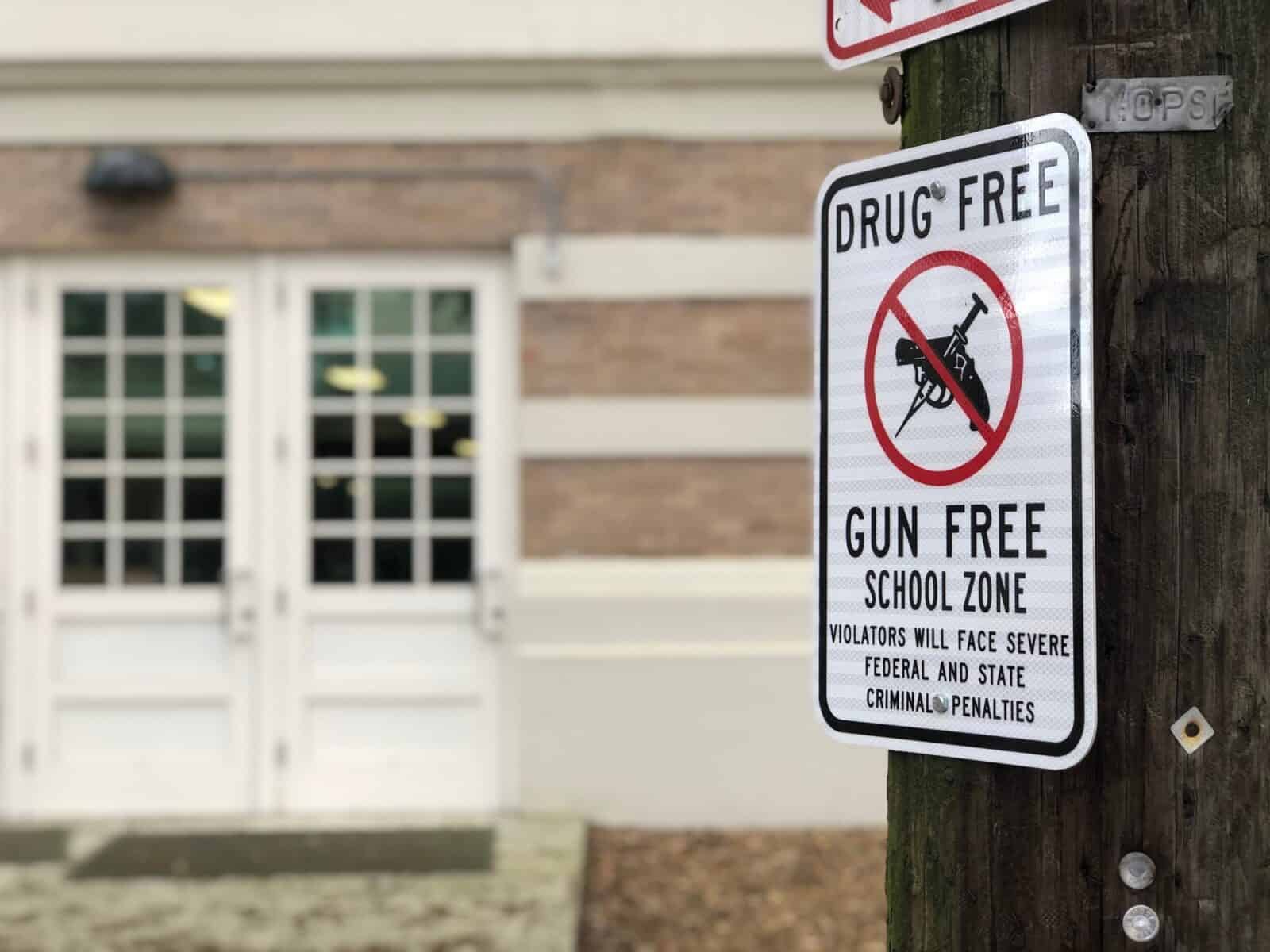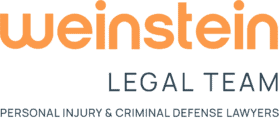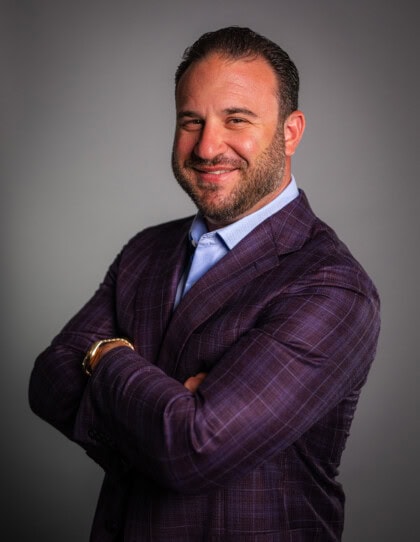In Florida's criminal justice system, the location of an alleged drug offense can transform a standard charge into one with dramatically increased penalties. A first-time offender caught with a small amount of marijuana can face up to 5 years in prison instead of 1 year simply because they were within 1,000 feet of a school or park. These invisible boundaries around schools, parks, churches, and other protected areas create zones where drug offenses are punished much more severely.
Many defendants are shocked to discover that simply being within 1,000 feet of certain locations can double their potential prison time or elevate their charge to a higher felony classification. Keep reading to learn how these location-based enhancements work and what strategies can be used to challenge them.

What Are Drug-Free Zone Enhancements in Florida?
Drug-free zone enhancements are statutory provisions in Florida law that significantly increase the penalties for drug offenses committed within designated protected areas. These laws create special zones around certain locations where drug crimes are punished more severely than identical offenses committed elsewhere.
The enhanced penalties apply automatically when the offense location falls within the specified distance of a protected area. These enhancements were established with the stated purpose of protecting vulnerable populations, particularly children, from exposure to drug activity.
What might otherwise be a third-degree felony can become a first-degree felony with these enhancements, transforming a possible 5-year maximum sentence into a 30-year maximum sentence. Some enhancements also trigger mandatory minimum sentences that judges cannot reduce, regardless of the specific circumstances of the case or the defendant's background.
Protected Locations Under Florida's Drug-Free Zone Laws
Florida law designates several types of locations as protected zones where drug offenses carry enhanced penalties. Each category of protected location has specific definitions and distance requirements that determine whether an enhancement applies.
Understanding exactly what constitutes each type of protected zone is essential for defendants facing drug charges with potential enhancements.
School Zones
School zones represent the most commonly applied drug-free zone enhancement in Florida. Under state law, any drug offense that occurs within 1,000 feet of a school property boundary triggers enhanced penalties. This includes public and private elementary, middle, and high schools, as well as colleges, universities, and licensed daycare or preschool facilities.
The school zone enhancement applies regardless of whether school is in session at the time of the alleged offense. Even during summer breaks, weekends, or overnight hours when no students are present, the enhancement still applies. The law also doesn't require any intent to distribute drugs to students or any actual involvement of minors in the alleged drug activity.
Public Parks and Recreational Facilities
Drug offenses committed within 1,000 feet of public parks or recreational facilities also trigger enhancement penalties in Florida. The law broadly defines these areas to include any publicly owned park, community center, playground, youth center, or recreational facility designed for use by the general public.
These enhancements apply to the entire park property, including parking lots, walking trails, and adjacent facilities. The enhancement applies regardless of whether anyone is using the park at the time of the alleged offense and regardless of whether the defendant knew they were near a protected area.
Places of Worship and Religious Facilities
Florida law also enhances penalties for drug offenses committed within 1,000 feet of places of worship. This includes churches, synagogues, mosques, temples, and other facilities regularly used for religious services or activities. The boundary is measured from the property line of the religious facility, not just the main building.
These enhancements apply regardless of whether religious services were in progress at the time of the alleged offense. Even if the building was completely empty, being within the 1,000-foot zone is sufficient to trigger the enhanced penalties.
Public Housing Facilities
Drug offenses committed within 1,000 feet of public housing facilities face enhanced penalties under Florida law. Public housing in this context includes any state or federally funded housing project, publicly owned residential property managed by a housing authority, or publicly owned residential property designed primarily for use by low-income residents.
This enhancement was created to protect residents of public housing communities from drug trafficking and associated violence. Critics have noted that this particular enhancement disproportionately impacts defendants from lower-income backgrounds, as public housing is typically located in economically disadvantaged areas where residents are already subject to heightened police surveillance.
Convenience Stores and Gas Stations
Florida's drug-free zone laws also designate areas within 1,000 feet of "convenience businesses" as protected zones. Under Florida Statute 812.171, convenience businesses include retail establishments that sell consumer food items and goods, have less than 10,000 square feet of retail floor space, and are open between 11 p.m. and 5 a.m. This typically includes gas stations, convenience stores, and small grocery markets.
This enhancement is somewhat unique to Florida and was added to address drug activity that often occurs around late-night retail establishments. The legislative rationale was to protect business owners, employees, and customers from drug-related crime and violence.
How Penalties Are Enhanced in Drug-Free Zones
When a drug offense occurs within a designated drug-free zone, Florida law automatically increases the severity of the potential penalties. These enhancements vary based on the type of drug offense and the specific substance involved.
Possession Charges in Drug-Free Zones
For simple possession offenses, drug-free zone enhancements typically increase the felony classification by one degree. For example, possession of cocaine is normally a third-degree felony punishable by up to 5 years in prison. When committed within a drug-free zone, it becomes a second-degree felony with a maximum penalty of 15 years imprisonment.
The impact is even more dramatic for possession of smaller amounts of marijuana. Outside protected zones, possession of less than 20 grams of marijuana is a first-degree misdemeanor with a maximum penalty of 1 year in jail. Within a drug-free zone, this same offense becomes a third-degree felony, increasing the maximum penalty to 5 years in prison and creating a lifelong felony record.
These enhancements apply regardless of whether the defendant intended to use the drugs personally or had any intent to distribute them within the protected zone. The mere presence of the drugs within the geographic boundary is sufficient to trigger the enhanced penalties.
Sale and Distribution Charges in Drug-Free Zones
The impact of drug-free zone enhancements is even more severe for sale and distribution offenses. The sale of controlled substances like cocaine, methamphetamine, or opioids is typically a second-degree felony punishable by up to 15 years in prison. When committed within a drug-free zone, these offenses become first-degree felonies with a maximum penalty of 30 years imprisonment.
For certain substances, drug-free zone enhancements also trigger mandatory minimum sentences that judges cannot reduce. For example, selling cannabis within 1,000 feet of a school becomes a first-degree felony with a mandatory minimum sentence of 3 years in prison, regardless of the defendant's criminal history or the amount of cannabis involved.
Even small-scale sales can result in decades-long prison sentences when drug-free zone enhancements apply. A first-time offender who sells a small amount of drugs to an adult friend within 1,000 feet of a protected location can face the same penalty range as someone who committed armed robbery or sexual battery, despite no violence or direct harm to others.
Trafficking Charges in Drug-Free Zones
Drug trafficking charges in Florida already carry some of the harshest penalties in the criminal justice system, including lengthy mandatory minimum sentences based on the type and quantity of drugs involved. When trafficking occurs within a drug-free zone, these already severe penalties become even more extreme.
For example, trafficking in 28 grams or more of cocaine normally carries a mandatory minimum sentence of 3 years in prison and a $50,000 fine. When committed within a drug-free zone, this same offense can result in a 15-year mandatory minimum sentence and significantly higher fines. The enhancement effectively multiplies the punishment, often resulting in sentences comparable to those for violent crimes.
These enhanced trafficking penalties apply even in cases where the defendant was merely transporting drugs through a protected zone without any intent to sell or distribute them in that area.
How Prosecutors Prove Drug-Free Zone Enhancements
To apply drug-free zone enhancements, prosecutors must prove beyond a reasonable doubt that the alleged offense occurred within the protected distance of a qualifying location. This typically involves specific measurement procedures and various forms of evidence to establish the exact location of the offense and its proximity to protected areas.
Measurement Methods
Florida law requires that the distance for drug-free zone enhancements be measured using the shortest straight line from the boundary of the protected property to the location of the alleged offense, regardless of obstacles in between. This "as the crow flies" measurement method often results in larger coverage areas than if measurements followed actual walking paths or streets.
Law enforcement typically conducts these measurements using specialized equipment such as surveying wheels, laser distance meters, or GPS devices. In some cases, they may bring in certified surveyors to take precise measurements, especially when the alleged offense occurred near the 1,000-foot boundary line.
Florida criminal defense attorneys can challenge these measurements by conducting independent verification, questioning the equipment used, or disputing the starting and ending points of the measurement. Small discrepancies can make the difference between an enhanced charge and a standard charge.
Evidence Used to Establish Location
Prosecutors typically use multiple forms of evidence to establish that an offense occurred within a drug-free zone. The most common include officer testimony about where the arrest occurred, GPS coordinates from police vehicles or body cameras, and maps showing the location of the arrest in relation to protected areas. They may also introduce property records to establish the boundaries of protected locations and photographs documenting the proximity.
In court, prosecutors often present visual aids such as enlarged maps with the protected zones clearly marked and the alleged offense location highlighted. They may overlay measurement data on these maps to visually demonstrate that the offense occurred within the 1,000-foot boundary. Some jurisdictions use specialized mapping software that can precisely calculate distances between locations.
These forms of evidence can have weaknesses that skilled defense attorneys can exploit. Officers may estimate locations rather than documenting exact coordinates, maps may be outdated or inaccurate, and measurement methods may not follow the statutory requirements.
Legal Defenses Against Drug-Free Zone Enhancements
Several effective legal strategies can be employed to challenge drug-free zone enhancements. These defenses can potentially remove the enhancement even when the underlying drug charge cannot be defeated entirely.
Developing a strong defense against these enhancements requires thorough investigation, legal expertise, and attention to technical details that many defendants might overlook.
Challenging Distance Measurements
One of the most effective defenses against drug-free zone enhancements involves disputing the prosecution's distance measurements. Defense attorneys can hire independent surveyors to conduct their own measurements using precise equipment and documented methodologies. These independent measurements sometimes reveal that the alleged offense actually occurred beyond the 1,000-foot boundary.
The method of measurement can also be challenged. Florida law requires the "as the crow flies" straight-line measurement, but law enforcement sometimes incorrectly uses walking distances or road routes. If the prosecution's measurements didn't follow the correct methodology, the enhancement may be invalid even if the offense occurred within what would have been a protected zone under proper measurement.
Inconsistencies in police reports regarding the exact location of the alleged offense can also provide grounds for challenging enhancements. Officers sometimes document approximate locations rather than precise coordinates, or different officers may report different locations in their documentation.
Questioning the Protected Status of Locations
Another effective defense strategy involves challenging whether the alleged protected location actually qualified as a drug-free zone at the time of the offense. For school zones, defense attorneys can investigate whether the facility was operational as a school or whether it had been closed, abandoned, or repurposed for non-educational use.
For public parks, the defense might investigate whether the area was officially designated as a park by the appropriate government entity. Some areas that appear to be parks may actually be private property or undeveloped land without official park status.
Religious facilities can also be scrutinized to determine if they were actively used for religious purposes at the time of the alleged offense. A building that was formerly a church but has been converted to another use or abandoned would not qualify as a protected zone, even if it still appears to be a religious facility from the outside.
Constitutional Challenges
Drug-free zone enhancements have faced constitutional challenges based on equal protection concerns. These laws often have a disproportionate impact on urban communities and communities of color, where protected zones cover substantially more territory due to population density. Some defendants have successfully argued that this disparate impact violates equal protection principles.
Some courts have questioned whether certain zone types, like those around convenience stores, truly serve the law's stated purpose of protecting vulnerable populations. These challenges focus on whether there is a rational basis for including specific locations within drug-free zone laws, particularly when the connection to protecting vulnerable people seems tenuous.
Lack of Knowledge Defense
In Florida, prosecutors generally do not need to prove that a defendant knew they were in a drug-free zone for the enhancement to apply. The law creates what is essentially a strict liability enhancement based solely on geographic location, regardless of the defendant's awareness or intent regarding the protected zone.
However, in some specific circumstances, lack of knowledge can become relevant to the defense strategy. If the protected location was not clearly marked, was not visible from the location of the alleged offense, or was not reasonably identifiable as a protected zone, these facts might support broader legal arguments about the application of the enhancement or potential constitutional challenges.
Collateral Consequences of Drug-Free Zone Convictions
Beyond the immediate penalties of incarceration and fines, convictions with drug-free zone enhancements carry significant collateral consequences that can impact defendants long after they've completed their sentences.
Drug convictions with enhancements often result in permanent felony records that can severely limit employment opportunities. Many professions require licenses that exclude individuals with drug felonies, including healthcare, education, and financial services. Even jobs without licensing requirements often conduct background checks and may automatically reject applicants with drug convictions.
Housing options become significantly restricted, as many landlords and public housing authorities deny applications from individuals with drug felony convictions. This can force individuals to live in areas with fewer resources and opportunities, perpetuating cycles of disadvantage.
Federal student aid eligibility is suspended for individuals with drug convictions, limiting educational advancement opportunities. Various government assistance programs may also be restricted, including food assistance programs and certain types of financial aid.
Speak to a Drug Defense Attorney Today
Florida's drug-free zone enhancement laws create a complex legal landscape where simply being in the wrong place can double or triple potential penalties for drug offenses. Understanding these location-based factors is essential for anyone facing drug charges in Florida. The difference between a standard drug charge and an enhanced charge can mean years or even decades of additional prison time.
If you've been charged with a drug offense that includes drug-free zone enhancements, having experienced legal representation is not just beneficial, it's essential. These enhancements are often technically complex and require specialized knowledge to effectively challenge.
The criminal defense attorneys at Weinstein Legal Team are available 24/7 to review your case. Call us today at 888.626.1108 to speak with an experienced drug defense attorney, or click here to start your free case review online.


